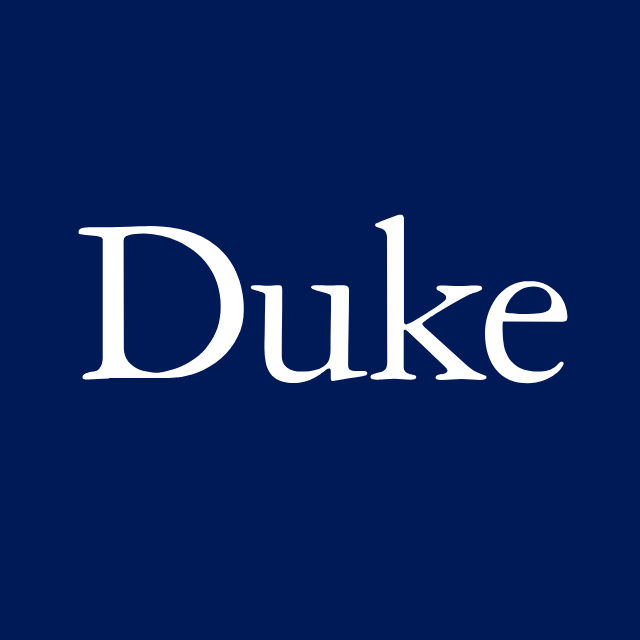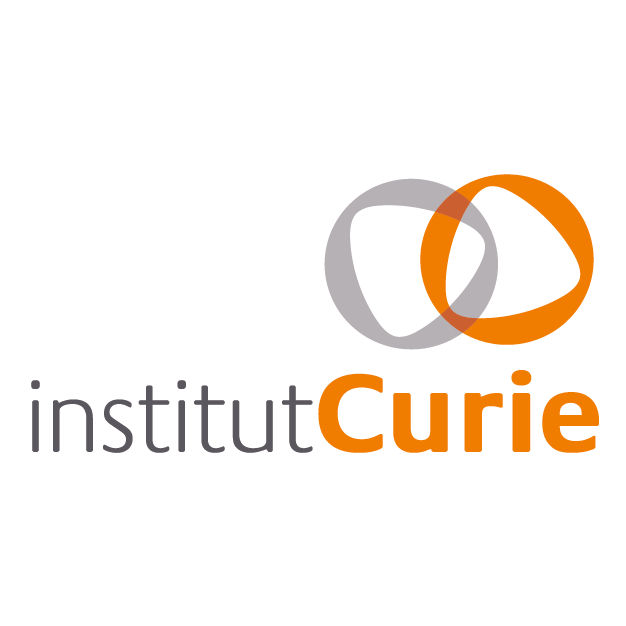编者按:偶联药物通过将与靶蛋白结合的配体与功能性载荷连接,实现向特定组织或细胞精准递送载荷的效果。近年来,这一领域快速发展,据统计,2024年全球启动了284项抗体偶联药物(ADC)临床试验,比2023年增加了100多项,彰显了偶联药物领域的迅猛增长。ADC之外,放射性偶联药物(RDC)、多肽偶联药物(PDC)以及寡核苷酸偶联药物等新兴偶联模式也不断涌现。在2025年,多款创新ADC疗法获批上市,双特异性ADC获得临床进展,RDC疗法也成为产业融资热点之一。药明康德旗下WuXi TIDES搭建了为寡核苷酸、多肽及复杂化学偶联药物开发提供一体化服务的CRDMO平台,覆盖从药物发现、CMC开发及商业化生产的全生命周期,尤其借助药明康德在化学业务方面的丰富经验,为赋能新一代偶联疗法奠定了坚实基础。本文将盘点2025年偶联领域的重要进展,并介绍WuXi TIDES一体化CRDMO平台赋能多肽偶联药物开发的能力。
抗体偶联药物:多款疗法获批上市,双特异性ADC崭露头角
2025年,4款创新ADC获得监管机构批准上市。阿斯利康(AstraZeneca)与第一三共(Daiichi Sankyo)联合开发的Datroway获批,用于治疗无法切除或转移性HR阳性、HER2阴性乳腺癌成人患者。这款靶向Trop2的ADC曾被行业媒体Evaluate列为潜在重磅疗法。2025年5月,FDA批准艾伯维(AbbVie)靶向c-Met的抗体偶联药物Emrelis上市,用于治疗c-Met蛋白高度表达的局部晚期或转移性非鳞状非小细胞肺癌(NSCLC)成年患者。恒瑞医药的HER2靶向ADC瑞康曲妥珠单抗获得批准,单药治疗存在HER2激活突变且既往接受过至少一种系统治疗的不可切除的局部晚期或转移性NSCLC成人患者。乐普生物开发的靶向EGFR的ADC维贝柯妥塔单抗也获得批准,用于治疗复发性或转移性鼻咽癌。
双特异性ADC通过靶向两个不同靶点,或者同一靶点上的两个不同表位,与只与单个靶点结合的ADC相比,可能增加与靶细胞结合的特异性,从而提高疗效并降低脱靶效应带来的潜在毒性。此外,靶向不同靶点蛋白可能让双特异性ADC与更为广泛的细胞群体结合,从而克服肿瘤的异质性。
2025年,双特异性ADC获得业界越来越多的关注,多家公司在这一领域获得临床进展。例如,百利天恒与百时美施贵宝(Bristol Myers Squibb)联合开发的靶向EGFR和HER3的潜在“first-in-class”双特异性ADC izalontamab brengitecan(iza-bren)在治疗鼻咽癌的3期临床试验中获得积极结果。数据显示,患者的确认客观缓解率(ORR)达54.6%,而对照组这一数值为27.0%。此外,治疗组的中位无进展生存期(PFS)为8.38个月,几乎是对照组(4.34个月)的两倍。
Iza-bren与EGFR抑制剂Tagrisso联用作为一线组合疗法,在治疗携带EGFR突变的非小细胞肺癌患者的2期临床试验中,达到95%的确认ORR,12个月无进展生存率为92.1%。这一疗法也被FDA授予突破性疗法认定。
此外,Avenzo Therapeutics和映恩生物联合开发的EGFR/HER3靶向ADC AVZO-1418完成1/2期临床试验的首位患者给药,用于治疗晚期实体瘤。康方生物的AK146D1是一款靶向Trop2和Nectin4的双特异性ADC,它在2025年7月也完成1a期临床试验的首例患者给药。
在2025年,双特异性ADC也成为研发合作的热点之一,至少有6项研发合作涉及双特异性ADC项目的开发。
▲2025年双特异性ADC领域的研发合作(数据截至12月17日)
放射性偶联药物:诺华重磅药再获FDA批准,多家新锐完成融资
2025年,诺华的重磅RDC疗法Pluvicto再次获得FDA批准,用于治疗PSMA阳性转移性去势抵抗性前列腺癌患者。此外,3期临床试验结果显示,它在治疗PSMA阳性激素敏感性前列腺癌患者时,也显示出具有临床意义和统计学显著性的放射学无进展生存期获益。
ITM Isotope Technologies开发的基于多肽偶联的靶向RDC疗法177Lu-edotreotide,在治疗胃肠胰神经内分泌肿瘤的3期临床试验中也达到主要终点。FDA已接受该公司提交的新药申请(NDA)。
Cellectar Biosciences开发的潜在“first-in-class”疗法iopofosine I 131获得FDA授予的突破性疗法认定,用于治疗复发/难治性华氏巨球蛋白血症(WM)。该药物将磷酸酯与放射性同位素偶联,能够特异性结合癌细胞表面的特定脂质区域。
在2025年,多家致力于开发放射性偶联药物的新锐完成融资。例如,AdvanCell公司于上半年完成1.12亿美元的C轮融资。该公司基于Pb212的靶向α粒子放射性疗法ADVC001具有“best-in-class”潜力,目前正在1/2期临床试验中用于治疗转移性前列腺癌患者。此外,该公司2025年还与礼来公司达成研发合作协议,共同开发针对多种癌症类型的创新靶向α粒子疗法。
ARTBIO在2025年7月完成1.32亿美元B轮融资,加速该公司α粒子放射性配体疗法项目的开发进程,重点推动其主打候选药物AB001在转移性去势抵抗性前列腺癌(mCRPC)患者中的2期临床试验。
▲2025年放射性偶联药物领域部分融资活动(数据截至12月17日)
虽然RDC在早期肿瘤成像和治疗方面均展现巨大潜力,但其药物结构复杂,通常由靶向配体、连接子、螯合剂和放射性同位素组成。其生产过程需要多学科的专业技术支持。药明康德综合性的放射性药物发现平台整合了多肽发现和放射性药物开发能力,提供包括多肽合成、螯合剂合成、放射性标记、成像、药理学研究和监管申报支持等完善的服务。一体化平台让多个团队并行攻坚、高度协作,帮助合作伙伴快速推动RDC项目,节省宝贵的开发时间。
药明康德旗下WuXi TIDES搭建了独特的CRDMO平台,为全球合作伙伴开发寡核苷酸、多肽药物及相关化学偶联物(TIDES药物)提供高效、灵活和高质量解决方案。
比如,在多肽偶联药物开发方面,WuXi TIDES全面的多肽平台结合了小分子化学能力,支持多肽-毒素、多肽-金属、多肽-GalNAc、多肽-寡核苷酸和放射性核素偶联药物等偶联药物的开发。WuXi TIDES的一体化平台让多个团队能够并行攻关,密切合作,显著提高项目推进速度。
未来,WuXi TIDES将继续依托其一体化、端到端的CRDMO平台,支持合作伙伴推进包括多肽偶联药物、寡核苷酸偶联药物在内的多类偶联药物研发,助力前沿科技转化为惠及全球患者的突破性疗法。
CRDMO: 2025 Review of Conjugated Therapeutics
Conjugated drugs enable the precise delivery of therapeutic payloads to specific tissues or cells by linking target-binding ligands with functional payloads. In recent years, this field has advanced rapidly. According to a recent report, 284 antibody-drug conjugate (ADC) clinical trials were initiated globally in 2024—over 100 more than in 2023. Alongside ADCs, new conjugated modalities have also gained momentum, including radionuclide-drug conjugates (RDCs), peptide-drug conjugates (PDCs), and oligonucleotide-drug conjugates. This growing momentum underscores the expanding potential of conjugated therapeutics in addressing a broad range of diseases.
Backed by extensive experience in chemistry and integrated drug development expertise, WuXi TIDES is supporting next-generation conjugated therapies. As an integral part of WuXi AppTec, WuXi TIDES has built an integrated CRDMO platform focused on oligonucleotides, peptides and related synthetic conjugates. This platform simplifies TIDES drug development by providing all discovery, CMC development and the entire manufacturing supply chain under one roof.
Antibody-Drug Conjugates: Multiple Approvals and the Rise of Bispecific ADCs
In 2025, four novel ADCs received their first regulatory approvals in key markets. Datroway (datopotamab deruxtecan), jointly developed by AstraZeneca and Daiichi Sankyo, was approved for the treatment of adults with unresectable or metastatic HR-positive, HER2-negative breast cancer. In May, AbbVie’s Emrelis (telisotuzumab vedotin), a c-Met-targeting ADC, received approval for treating adults with locally advanced or metastatic non-squamous non-small cell lung cancer (NSCLC) with high c-Met expression. Also in May, the HER2-targeting trastuzumab rezetecan, developed by Hengrui Pharma, was approved for the treatment of adult patients with unresectable locally advanced or metastatic NSCLC harboring activating HER2 mutations who have previously received at least one systemic therapy. Lepu Biopharma’s EGFR-targeting ADC, becotatug vedotin, was also approved for the treatment of recurrent or metastatic nasopharyngeal carcinoma.
Beyond conventional ADCs, bispecific ADCs—designed to target either two distinct antigens or two different epitopes on the same antigen—are emerging as a promising next generation of conjugated therapies. Compared with ADCs that bind a single target, bispecific ADCs may enhance binding specificity to target cells, thereby improving therapeutic efficacy while reducing potential off-target toxicity. Moreover, by engaging different target proteins, bispecific ADCs may interact with a broader population of tumor cells, offering a potential strategy to address tumor heterogeneity.
Accordingly, bispecific ADCs have attracted increasing attention across the industry in 2025, with several programs reporting meaningful clinical progress. Notably, izalontamab brengitecan (iza-bren), a potential first-in-class bispecific ADC targeting EGFR and HER3 developed by Biotheus in collaboration with Bristol Myers Squibb, demonstrated positive results in a Phase 3 clinical trial in nasopharyngeal carcinoma. The confirmed objective response rate (ORR) reached 54.6% in the treatment group, compared with 27.0% in the control group. In addition, the median progression-free survival (PFS) was 8.38 months, nearly double that observed in the control arm (4.34 months).
Further reinforcing its clinical potential, iza-bren in combination with the EGFR inhibitor Tagrisso, used as a first-line regimen, achieved a confirmed ORR of 95% in a Phase 2 trial in patients with EGFR-mutant NSCLC. The 12-month progression-free survival rate reached 92.1%, and the combination therapy was granted Breakthrough Therapy Designation by the FDA.
In addition, a Trop2/Nectin-4 bispecific ADC and an EGFR/HER3-targeting ADC both completed the dosing of first patients in their first-in-human clinical trials.
Reflecting this growing momentum, bispecific ADCs have also become a focal point for strategic collaborations. In 2025 alone, at least six R&D partnerships were established around the development of bispecific ADC programs, highlighting strong industry confidence in this emerging modality.
Radionuclide-Drug Conjugates: A Blockbuster Secures Another FDA Approval as Emerging Players Complete Major Financings
In 2025, Novartis’ blockbuster RDC therapy Pluvicto received another FDA approval for the treatment of patients with PSMA-positive metastatic castration-resistant prostate cancer. In addition, results from a Phase 3 clinical trial showed that Pluvicto also delivered clinically meaningful and statistically significant improvements in radiographic progression-free survival in patients with PSMA-positive hormone-sensitive prostate cancer, further expanding its clinical potential.
Meanwhile, ITM Isotope Technologies reported positive Phase 3 results for its peptide-based targeted RDC therapy ¹⁷⁷Lu-edotreotide in patients with gastroenteropancreatic neuroendocrine tumors, meeting the trial’s primary endpoint. The FDA has accepted the company’s New Drug Application (NDA) for this candidate, marking an important regulatory milestone.
Progress has also been made with novel mechanisms in the field. Cellectar Biosciences’ potential first-in-class therapy iopofosine I 131 was granted Breakthrough Therapy Designation by the FDA for the treatment of relapsed or refractory Waldenström macroglobulinemia (WM). This drug conjugates a phospholipid ether with a radioactive isotope, enabling selective binding to specific lipid domains on the surface of cancer cells.
Alongside these clinical and regulatory advances, 2025 has also been an active year for financing among emerging RDC developers. For example, AdvanCell completed a $112 million Series C financing in the first half of the year. Its Pb-212-based targeted alpha-particle radiotherapy candidate ADVC001, which has demonstrated best-in-class potential, is currently being evaluated in a Phase 1/2 clinical trial for patients with metastatic prostate cancer. In addition, AdvanCell entered into a research collaboration with Eli Lilly this year to jointly develop innovative targeted alpha-particle therapies across multiple cancer indications.
Similarly, ARTBIO closed a $132 million Series B financing in July, accelerating the development of its alpha-particle radioligand therapy programs. The funding will primarily support advancement of its lead candidate AB001 into a Phase 2 clinical trial in patients with metastatic castration-resistant prostate cancer (mCRPC).
Although RDCs have demonstrated potential in early tumor imaging and treatment, their complex drug structures—typically composed of a targeting ligand, linker, chelator, and radionuclide—require multidisciplinary technical expertise for development and manufacturing. WuXi AppTec offers a comprehensive radiopharmaceutical discovery platform that combines peptide discovery with radiopharmaceutical development, covering peptide synthesis, chelator synthesis, radiolabeling, imaging, pharmacology studies, and regulatory filing support. This integrated model enables parallel, highly collaborative efforts across multiple teams, helping partners accelerate RDC programs and save valuable development time.
In addition to RDC, WuXi TIDES, a specialized CRDMO platform under WuXi AppTec, provides efficient, flexible, and high-quality solutions for the development of oligonucleotides, peptides, and related chemically conjugated molecules—collectively known as "TIDES" drugs. The platform integrates advanced peptide capabilities with small molecule chemistry, supporting various peptide conjugates, including but not limited to: peptide-toxin, peptide-metal, peptide-GalNAc, peptide-PMO, peptide-oligonucleotide, etc. The platform’s integrated nature enables cross-functional teams to collaborate in parallel, significantly accelerating project timelines.
In summary, 2025 has seen remarkable progress in the conjugated drug field across new drug approvals, clinical milestones, strategic partnerships, and financing activity. As innovation and optimization in conjugation technologies advance, the field is poised for even more breakthroughs. WuXi AppTec will continue to leverage its fully integrated, end-to-end CRDMO platform to support partners in advancing diverse classes of conjugated drugs—including peptide- and oligonucleotide-based conjugates—ultimately helping to transform scientific breakthroughs into life-changing therapies for patients worldwide.
免责声明:本文仅作信息交流之目的,文中观点不代表药明康德立场,亦不代表药明康德支持或反对文中观点。本文也不是治疗方案推荐。如需获得治疗方案指导,请前往正规医院就诊。
版权说明:欢迎个人转发至朋友圈,谢绝媒体或机构未经授权以任何形式转载至其他平台。转载授权请在「药明康德」微信公众号回复“转载”,获取转载须知。
分享,点赞,在看,传递医学新知














